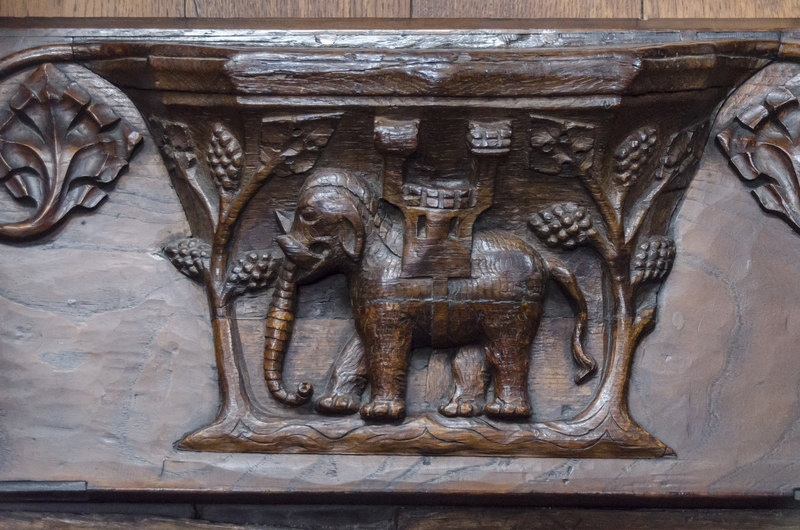Yep, that sounds about right.
So what that you couldn't find the napkins, or that Great Aunt Dora fell asleep between the turkey and the pudding. Christmas was never going to be perfect while there were people involved. Give yourself a break!
Which brings us to misericords. They sound as if they're to do with misery, but they're not. They're about giving yourself a break.
A misericord is a ledge fixed under the surface of a tip-up seat. They're for monks to perch on when they're supposed to be standing up at church services. Yes, that is cheating, a bit, but then even monks are human. Misericords are often beautifully carved (and the carvings are hidden most of the time, when the seat is down, so the decorations can be playful):

photo copyright Julian P Guffog. Misericord in St Mary's, Beverley, Yorkshire, England, 1400s.
That elephant is presumably a comment on the fatness of some of the monks!
Misericords can also be also rest homes for sick or old monks and nuns where the strict rules of their lives are relaxed a bit.
There is one other meaning of misericord, and you can see it on this, well, misericord:

photo by Jules and Jenny
You see that the hunter is reaching for his dagger to finish off the wild boar he's speared? Well, a dagger used to finish off a victim is called a misericord, too. (That misericord carving is on Beverley, too.)
And if you've got through Christmas and New Year without using one of those, then you can feel jolly pleased with yourself.
Give yourself a break!
Word To Use Today: misericord. This word comes from the Latin misericordia, compassion, from miserēre, pity and cor, heart.
No comments:
Post a Comment
All comments are very welcome, but please make them suitable for The Word Den's family audience.